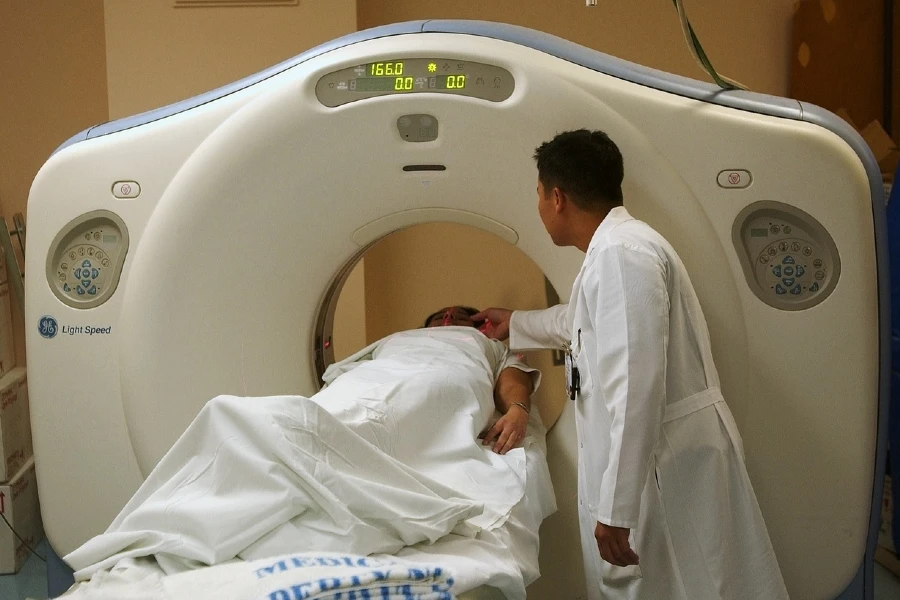Inflammatory bowel disease (IBD) is a collection of persistent inflammatory diseases that impact the gastrointestinal (GI) tract, also known as the digestive system. There are two primary manifestations of IBD:
Crohn’s disease, an inflammatory bowel disease (IBD), can cause inflammation in any segment of the gastrointestinal (GI) tract, spanning from the oral cavity to the rectum. However, it primarily impacts the distal portion of the small intestine, known as the ileum and the colon.
Ulcerative colitis is a form of inflammatory bowel disease that mainly targets the mucosal lining of the colon and rectum.
Signs of Inflammatory Bowel Disease (IBD):
The symptoms of IBD might differ based on the intensity of inflammation and the precise site of the afflicted region. Nevertheless, specific common indications can be observed:
- Hematochezia, a possible manifestation of diarrhea
- Gastrointestinal discomfort and spasms in the abdominal region
- Immediate and pressing need to defecate (urgency)
- Reduction in body mass
- Tiredness
- Experiencing abdominal distention
The immune system in individuals with IBD erroneously targets and damages healthy tissues in the gastrointestinal (GI) tract.
Factors contributing to the development of Inflammatory Bowel Disease (IBD):
The etiology of IBD remains uncertain. However, experts think that it is a multifactorial condition resulting from a combination of several causes, including:
The immune system in individuals with IBD erroneously targets and damages healthy tissues in the gastrointestinal (GI) tract, resulting in inflammation.
Genetics: The presence of a close family member with IBD elevates your susceptibility to developing the disorder.
Environmental factors, such as smoking or exposure to specific bacteria or viruses, may contribute to the onset of IBD.
IBD diagnosis:
There is no single diagnostic test for inflammatory bowel disease (IBD). Medical practitioners commonly employ a variety of diagnostic techniques, which may include:
Medical history and physical examination: Your physician will inquire about your symptoms and medical background and conduct a physical exam to identify any indications of inflammation.
Hematological analyses: These examinations can aid in detecting anemia, infection, or other medical disorders.
Stool tests can be conducted to detect the presence of blood, infection, or concealed inflammation.
Stool tests can be conducted to detect the presence of blood, infection, or concealed inflammation.
Imaging modalities such as X-rays, CT scans, or MRIs can be utilized to image the gastrointestinal (GI) tract and detect signs of inflammation or obstructions.
Endoscopy is a medical technique that entails inserting a slender and flexible tube equipped with a camera into the rectum and colon to observe the interior lining. Biopsies, which are tissue samples, may be collected for additional analysis.
Management of Inflammatory Bowel Disease (IBD):
While a cure for IBD does not currently exist, many treatments can effectively alleviate symptoms and mitigate inflammation. Typical treatment choices comprise:
Treatment options may include corticosteroids to alleviate inflammation, immunosuppressants to suppress the immune system and anti-diarrheal medicines.
Modifying one’s diet and lifestyle can be beneficial in managing symptoms and enhancing general well-being. This includes implementing stress management techniques.
Surgery may be required in certain severe cases to excise a compromised segment of the gastrointestinal tract.
IBD is a complex disorder, but with appropriate medical care and lifestyle adjustments, individuals with IBD can have fulfilling and productive lives.
Managing Inflammatory Bowel Disease:
IBD is a complex disorder, but with appropriate medical care and lifestyle adjustments, individuals with IBD can have fulfilling and productive lives. Below are many resources that may be beneficial to you:
National Institutes of Health (NIH): https://www.niddk.nih.gov/about-niddk/strategic-plans-reports/burden-of-digestive-diseases-in-united-states/inflammatory-bowel-disease
Crohn’s and Colitis Foundation: https://www.crohnscolitisfoundation.org/
It is crucial to seek medical advice from a doctor if you are suffering symptoms of IBD to have an accurate diagnosis and appropriate treatment.

Dominic E. is a passionate filmmaker navigating the exciting intersection of art and science. By day, he delves into the complexities of the human body as a full-time medical writer, meticulously translating intricate medical concepts into accessible and engaging narratives. By night, he explores the boundless realm of cinematic storytelling, crafting narratives that evoke emotion and challenge perspectives.
Film Student and Full-time Medical Writer for ContentVendor.com




